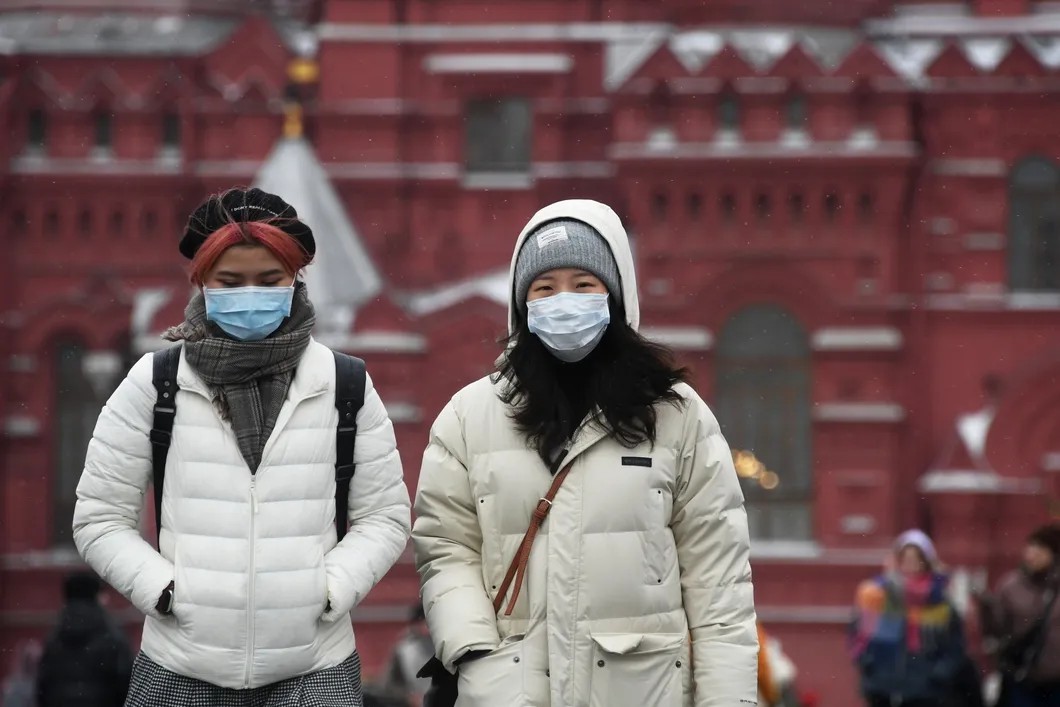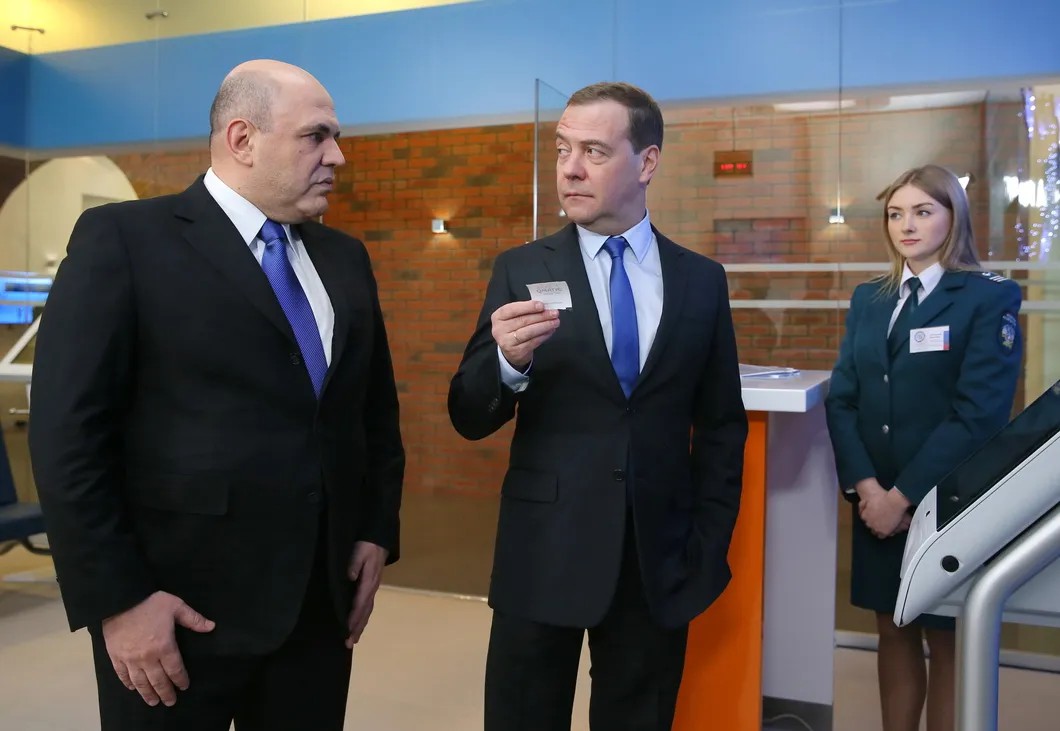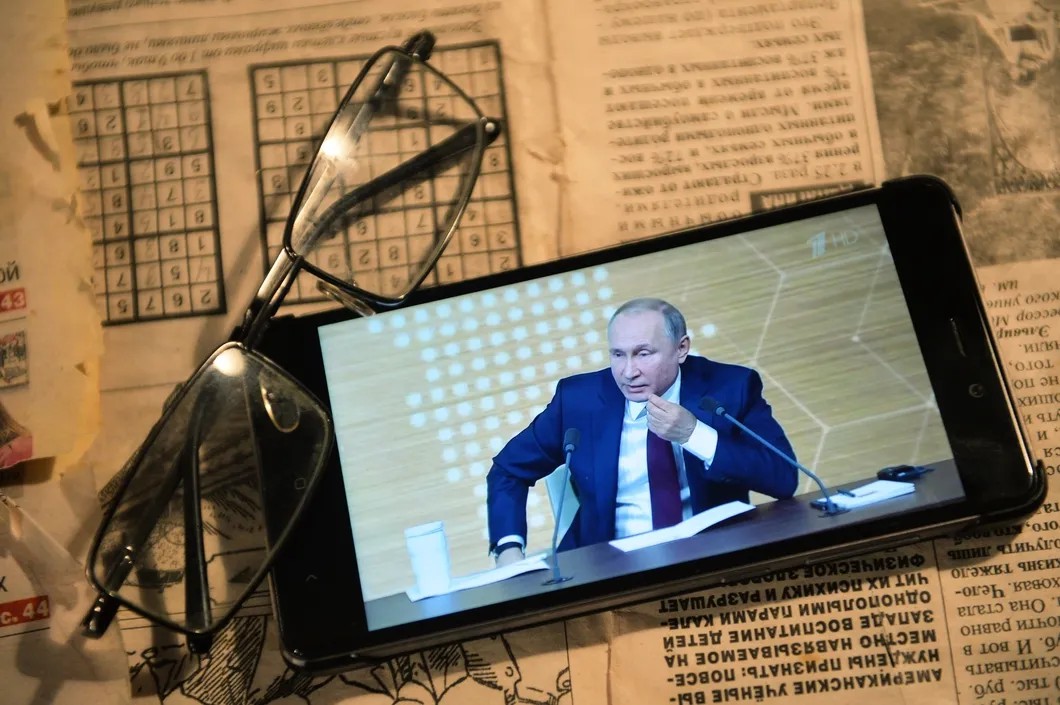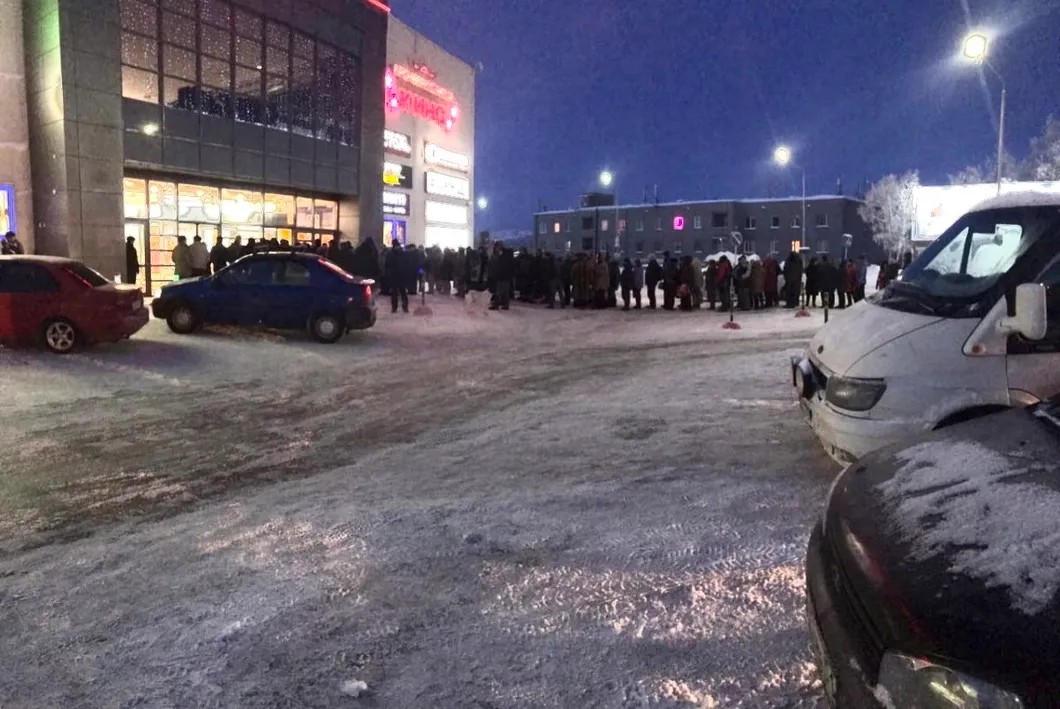This Week’s Highlights
Russia has a new government, but does it really matter? Prolific political analyst Tatiana Stanovaya breaks down the new cabinet for us. Plus, Russia forces pre-installed software on all smartphones sold in the country; pictures of long lines for fish in the Russian Arctic go viral (for all the wrong reasons), and other top stories that Russia has been reading this week.
Want to get the full story? Click the links below for full-length articles in Russian.
New feature! Russia, Explained Audio Briefing. Also available on Apple Podcasts and Google Podcasts!
Wuhan Virus Update

Russia has yet to see a confirmed case of the Wuhan coronavirus, but public unease is setting in. The authorities are urging people to refrain from traveling to China, yet the number of flights to and from have not diminished and Russian airports have not introduce any additional health screenings. Even a flight from Wuhan was allowed to land in Russia on Friday. Meanwhile, airport drugstores have sold out of medical masks, but pharmacists say it’s mostly foreign tourists buying them.
Russia’s New Cabinet, Explained
Our most-read story this week is an interview with well-known political analyst Tatiana Stanovaya, who explains what the political shakeup in the Russian cabinet means.
On the outgoing government.The Medvedev government became a dead weight, which impeded development, created risks and irritated the population. Now, President Vladimir Putin’s power transition has become a catalyst for the cabinet’s resignation, Stanovaya explains. Prime Minister Dmitry Medvedev’s exit was partly due to the fact that he could not find a more prominent position in the new configuration of power and his hasty departure suggests an emotional reaction on his part.
On new PM.“The new Prime Minister is a universal soldier who has come to serve,” Stanovaya says. In other words, Mikhail Mishustin is a yes-man, which makes things easier for Putin. This does, however, pose a potential systemic problem, since Putin is primarily preoccupied with foreign policy and has little interest in domestic issues.

Ones to watch.First Deputy Prime Minister Andrei Belousov is the most politically prominent player in the new government, in Stanovaya’s opinion. Belousov is among the “political technocrats” – a group from outside of Putin’s inner circle, who have found themselves increasingly in demand in recent years because he sees them as good at their jobs. Keep an eye on high-profile “reshuffle survivors,” too, like the head of defense Sergey Shoygu and foreign affairs chief Sergey Lavrov. While they were not Putin’s people initially, they are now thanks to their successes in overseeing these important sectors for many years.
The new government is “technical.”“A technical cabinet is a cabinet that is minimally ideological, built exclusively by and according to the agenda of the president and not politicized,” Stanovaya says. “This government is not a player, it’s a doer. However, ‘technical’ does not mean weak.” By comparison, Medvedev’s cabinet was political, but very weak, whereas Mishustin’s new cabinet is technical and very strong.
On Putin’s successor.With a new cabinet and Prime Minister in place, the question remains of who will be Russia’s next president. Despite the fact that Putin himself doesn’t plan on going anywhere, he might abandon the presidential title. As for Stanovaya, she thinks that Putin already knows who his presidential successor will be – but he won’t say.
Read our full interview with political analysts Tatiana Stanovaya here.
“Law Against Apple,” Explained
Поддержите
нашу работу!
Нажимая кнопку «Стать соучастником»,
я принимаю условия и подтверждаю свое гражданство РФ
Если у вас есть вопросы, пишите [email protected] или звоните:
+7 (929) 612-03-68
Starting July 1, 2020, smartphones sold in Russia will come with Russian software pre-installed, including anti-virus, navigation, social networking, messenger and government service apps. This should help make “traditional Russian spiritual and moral values a priority,” or so the Federal Antimonopoly Service (FAS) claims. Experts, on the other hand, are unanimously critical, saying these regulations will “paralyze” the smartphone market.

Why?These new measures are a result of the “Law on the protection of consumer rights,” which is often referred to as the “law against Apple” because it’s threatening to oust the American tech giant from the Russian market. This would drive Russian consumers towards major domestic tech companies, like Yandex, making them seem more competitive. While Apple has already threatened to leave Russia if the law comes into practice, Yandex is reportedly one of the main lobbying powers behind it.
Who really needs it?While some have suspicions that mandating government-approved apps is connected to the push for developing a sovereign Russian Internet, the new law also poses privacy concerns. Russian software developers are subject to invasive privacy laws that force them to share user information with the state. In other words, the government appears to be consolidating its control over any type of software used in the country – and they’re going after hardware as well. The Russian government is in the process of finalizing another law that would require citizens to register their SIM cards with the authorities. This measure, which looks like an attempt expand state spying, has been spreading across authoritarian states in the Eurasian Economic Union (EAEU), as well.
Uncertainty for manufacturers.The new law also creates great legal uncertainty for manufacturers, who will have to seek out developers themselves and make sure their apps comply with government criteria. This threatens to paralyze the smartphone market because it will be unclear whether or not a device can be sold until the government gives it the green light.
Find out what experts have to say about Russia’s new smartphone regulations here.
FishingCollapse in Russian Arctic, Explained
In the northwestern port city of Murmansk, in minus twenty-five-degree weather, dozens of people lined up for hours in the hopes of buying fish at a slightly cheaper price. Photos of the giant queue went viral on social media – bringing back harrowing memories of shortages during the economic collapse of the 1980s and 1990s. We went to investigate.
Fish shortages get worse.Murmansk, a city of 300,000 people located two degrees north of the Arctic Circle, was once the fish capital of Russia’s Far North. But after the collapse of the Soviet Union local shipowners privatized pieces of the USSR’s giant fleets and defected to neighboring Norway. As a result, local fish disappeared from supermarket shelves. But the shortages have become even worse “thanks” to Ukraine-related counter-sanctions in 2018 — and banned high-quality imports have now been replaced by frozen fish from China and Vietnam.

Bizzare obstacles to local fishing. Residents of Murmansk who want to eat fresh, local fish have another option – buying it on the black market. The city has plenty of illegal vendors selling local catch and you can hardly call what they’re doing criminal. These so-called “illegals” are actually inhabitants of coastal areas in the region, where corruption and red-tape keep most fishermen from catching fish legally. Meanwhile, residents of Murmansk are forced to stand in the bitter cold in the hopes of buying cheap, frozen fish from abroad.
Pending environmental disaster.Apart from state mismanagement, the fauna of the Murmansk coast is suffering from a scourge of Kamchatka crab, introduced to the region as part of a failed scientific experiment in the 1960s. Since they have no natural predators in the area, the crab population is continuing to grow and threatening to eat all of the plankton. And since crab fishing is strictly prohibited here, overpopulation will soon lead to a disaster.
Read more about the collapse of the fishing industry in Murmansk here.
Other Top-Stories Russia Has Been Reading
- Changes to the Constitution continued to grab headlines this week, as protesters took to the streets to oppose Putin’s latest power grab. One group of Russian citizens even penned a manifesto, titled “Against the Constitutional Coup and Usurpation of Power” – we published it in full and it was this week’s second most-read piece on our website.
- Officials in the Russian region of Chechnya have “resurrected” the dead as part of a cover-up of mass extrajudicial executions in 2017, a new Novaya Gazeta exposé reveals. Twenty-seven people were kidnapped and murdered in Chechen police raids in December 2016 and January 2017. Along with pogroms targeting the LGBTQ community, the raids provoked broad news coverage and forced Russian officials to investigate. Meanwhile Chechen officials denied that the men in question were missing and tried to pass their siblings off as them. However, our reporters crossed-identified the victims and exposed the cover-up.
Illustration by Petr Sarukhanov
- Police in the Siberian city of Krasnoyarsk have uncovered anunderground studio that made adult films featuring the sexual abuse of minors.Gruesome stuff. The crackdown became a national scandal when the studio’s ties to government fundingcame to light. One of the detainees is the founder and director of the Yenisei Rehabilitation Center, which offers rehabilitation services to adolescents struggling with alcohol and drug abuse. The Center just accepted a 766 thousand rouble (over $12 thousand) presidential grant to fund its work in 2020. Read more about the sexual abuse scandal in Krasnoyarsk here.
Thanks for reading! To keep up with Novaya Gazeta’s reporting throughout the week, you can follow us on Facebook, Twitter, Instagram and Telegram. Our video content is available on Youtube and don’t forget to visit our website for the latest stories in Russian. Until next time!
— The Novaya Gazeta Newsletter Team
Поддержите
нашу работу!
Нажимая кнопку «Стать соучастником»,
я принимаю условия и подтверждаю свое гражданство РФ
Если у вас есть вопросы, пишите [email protected] или звоните:
+7 (929) 612-03-68
